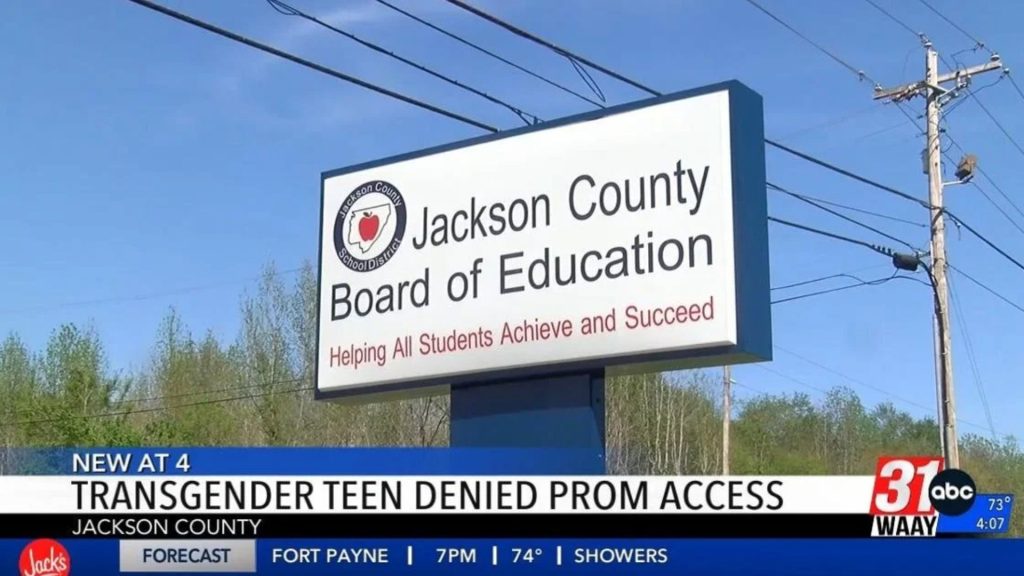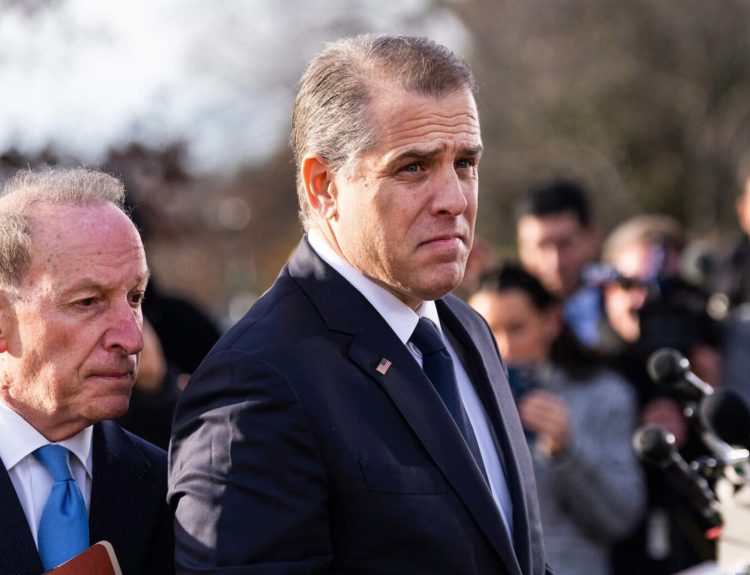Recently police were called to an Alabama school when a transgender student was reportedly barred from entering the prom as she refused to change out of her attire. The student wanted to attend the event wearing a dress but it wasn’t something the school authorities were willing to allow.
Arrived With A Group of Friends
The student came to attend the prom in a dress along with a group of friends at Section High School in Jackson County, Alabama.

She was reportedly prevented from entering the venue unless she agreed to change into pants, as reported by local ABC news station WAAY 31.
Things Escalated Quickly
Lesa Drake, the mother of a male student studying at the same school, received a call from the group.

Drake came over and confronted Principal Blake Wigley over the issue. The school called the police at that point.
Drake’s Confrontation
Drake was upset over the situation. She confronted the school principal asking why this particular student had been barred when there were other transgender students not wearing conventionally masculine and feminine attires according to their birth gender.

Drake conveyed to WAAY 31, “I kept asking why. Why can’t she come? Because she’s wearing a dress. There were other transgender students in there not wearing their birth gender attire. What is wrong with this issue? And he kept saying, ‘I told her yesterday.’”
Drake Couldn’t Find Any Relevant Policy In The Student Handbook
Wigley allegedly informed Drake that the school’s handbook adequately explains the decision to deny the student entry to the prom. However, when Drake checked the handbook herself, she could not find any relevant policy supporting the school’s decision.

Drake said, “I looked at the student handbook, and there’s absolutely nothing in it, and there’s nothing in the prom section. And this is all caught on tape by the officer that was there.”
What The Handbook Actually States
While the student handbook of Jackson County School District does not contain any specific policy with regards to transgender students, it does have a mission statement outlining the goals and values of the school.

The mission statement says that the school “will provide educational opportunities for children on a nondiscriminatory basis.”
Two Sections Of The Handbook May Be Relevant To This Incident
The school’s mission statement also states, “No person will be denied the benefits of any educational program or activity on the basis of race, color, disability, creed, national origin, age or sex.”

Again, while the handbook doesn’t state anything directly related to transgender students, there are two sections that may be relevant to the incident. One of the sections is about dress code. The other one outlines the edibility criteria students must meet to attend the school prom.
The School’s Dress Code
The dress code specifies exactly what kind of clothing items are prohibited at school. This includes items like such T-shirts with vulgar messages, pajamas, and fishnet stockings among others.

There is also a disclaimer in that section stating the principal or vice principal has the right to “deem appropriate clothing or appearance.”
Prom-Related Policy
In the policy section related to the prom, the handbook states that the evening is considered a “formal event and both students and dates should dress accordingly.”

The Alabama office of the legal advocacy group ACLU has made it clear that public school dress codes “can’t be explicitly discriminatory.”
ACLU’s Statement
Talking about public school dress codes, ACLU posted on its website, “while dress codes may specify types of attire that are acceptable, these requirements should not differ based on students’ sex or their race.”

According to the ACLU, students “whether transgender or cisgender, must be allowed to wear clothing consistent with their gender identity and expression.”
Getting Into The Details
Getting into more details, ACLU further explained things by saying, “A dress code can’t require girls, and only girls, to only wear skirts or dresses and boys, and only boys, to wear pants or a jacket and tie. The same goes for ceremonial events and special occasions, like prom, yearbook photographs, or graduation.”

ACLU added, “A school can specify ‘formal attire,’ or even ‘gowns or tuxedoes,’ but it can’t require that girls, and only girls, wear gowns or that boys, and only boys, wear a tux.”
Rights Afforded By The First Amendment
According to the Southern Poverty Law Center schools can’t impose restrictions that violates students’ First Amendment rights.

The Southern Poverty Law Center stated, “The First Amendment allows students to express themselves at school… You also have the right to wear clothes that match your gender identity.”
Drake’s Thoughts On The School’s Decisions
Drake shared her thoughts on the school’s decision, saying, “Who gives a crap about what they wear? And these kids, if they’re not seen or heard, kill themselves.”

Drake added, “You know, would I rather my son wear a dress to prom or off himself? Definitely wear that dress to prom. Who cares? It’s nobody’s business. And just like, who cares who you’re having sex with.”
Alabama’s Controversial Bills
In 2022, Alabama state passed a set of highly controversial bills targeting transgender students.

LGBTQ+ advocacy group Human Rights Campaign stated that these bills are “the single most anti-transgender legislative package in history.”
Alabama Doesn’t Allow Puberty Blockers and Hormone For Transgender Individuals Under 19
In Alabama, physicians have been prohibited from prescribing hormones or puberty blockers to any individual who is under 19 years old.

Alabama Governor Kay Ivey has also signed into law a requirement that students must use restrooms at schools corresponding to their birth gender.






